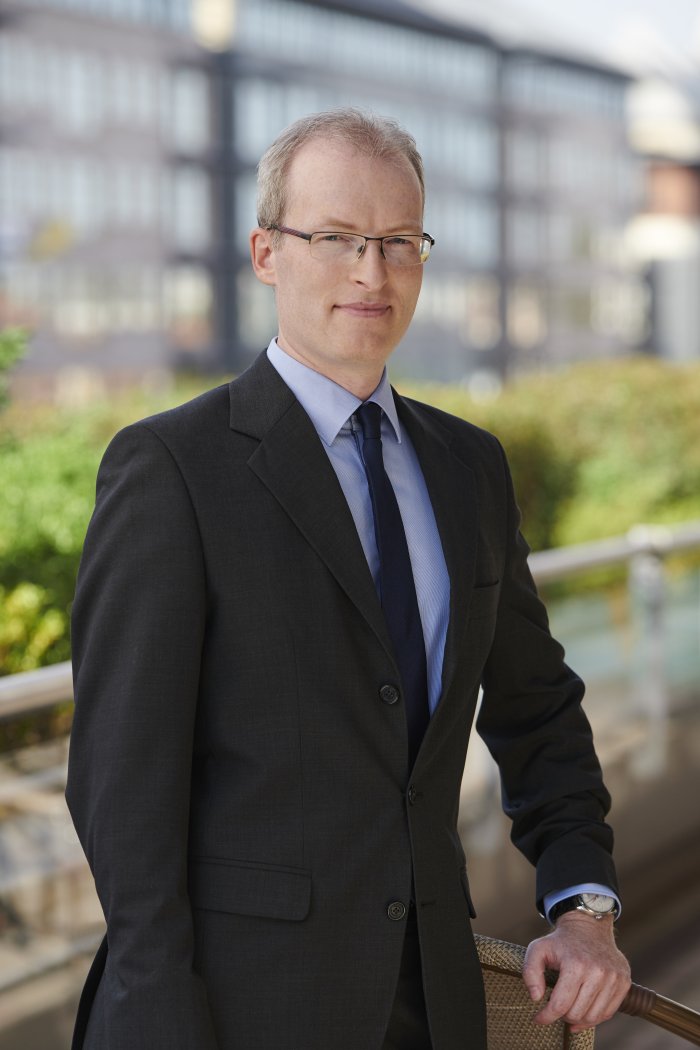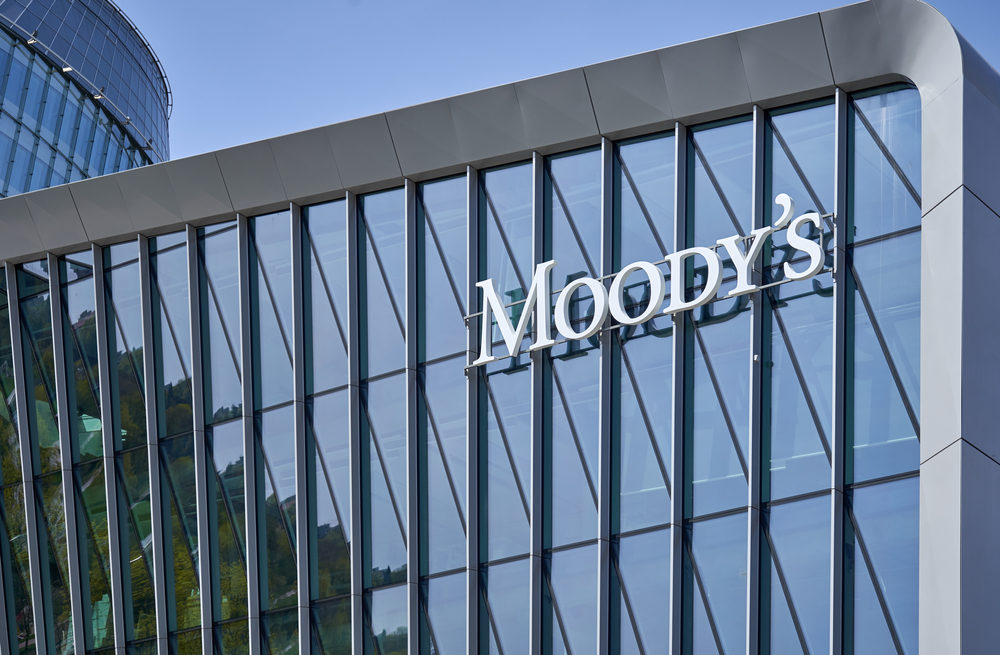Developing Alongside Growth and Ever Changing Challenges

Zoltán Lehoczky, the CFO at Granit Polus Group, talks about the challenges and rewards of climbing the corporate ladder within a company that is both family owned and international in outlook.
Zoltán Lehoczky
BBJ: Looking at your CV, one instantly notes that it’s been a while since you last had a job interview. You have been with this company for more than 15 years; what made you stay?
Zoltán Lehoczky: “In-house” I filled a number of positions, as did the companies I have dealt with. This group is always in motion and, therefore, my job is very versatile and challenging. Many – the core of the company – have been working here for equally long. Fluctuation is relatively low.
BBJ: Have you been approached by other companies? If so, why did you turn them down?
ZL: As long as my job is challenging enough… here there is a working environment I know. I know how it works and what I can expect. In a new environment, there is always some level of uncertainty. Despite new challenges, I would be probably more willing to accept uncertainty. But since here we always have a goal to attain, this has never come up.
BBJ: What makes this workplace so special that you like working here?
ZL: It is an interesting mixture: it can be regarded a family business but it has an international portfolio, which introduced a multicultural environment. Up-to-date, we still we have many operations abroad. The combination of the two results in this environment where – due to the company’s family-led nature – one gets to have responsibilities/rights one would not at a multinational firm. This structure allows for more rapid and effective work. I, too, experience this and I like it.
BBJ: Beyond providing an environment where you feel motivated and challenged, what are the core values that have led you to stick with this company?
ZL: It is the core activities, what it does, what its products are, that I can identify with. A property itself, the fact that we build something from scratch, that will remain there and become the part of a city or community for decades are values that, I believe, are not difficult to identify with.
A shopping mall in Arad could serve as a good example for the versatility of the jobs I deal with. We became owners in 2013 and have been operating and managing the property ever since. When we took it over from the previous owner, I became responsible for the management of the project, not only from a financial but also from a business aspect. It was a completely different set of tasks; we had to make competitive a project that, both from bankability and operational view, was losing ground. The challenge was to turn a distressed asset into a prosperous one. We did it: we filled the facility with international tenants and repositioned it into one that is sought after by investors. It is a success story I am proud to have been a part of.

WestEnd City Center
BBJ: You have come a long way from senior controller to finance director to chief financial officer. Comparing these, what are the skills that your current position requires that the previous roles did not?
ZL: As a senior controller, I mostly dealt with administrative tasks. I had to produce reports for the management, which was a huge challenge as I had to make consolidated reports right from the start. But it was mainly dealing with numbers and data and following the instructions of my superior. The difference between a finance director, my previous post, and the CFO is the responsibilities I now have. Now as a member of Chief Executives, I became responsible for continuously setting up the best possible and most effective operational model and at the same time being part of most relevant strategical presentations such as negotiating bank financing, preparation of a potential IPO or structuring project disposals or acquisition. These tasks are qualifying me as a key personnel within the organization.
BBJ: This is all on the technical side. What do you find the most challenging aspect of being a leader?
ZL: I am responsible for a number of fields, and my jobs have shifted towards the management of these fields and people from the execution of different tasks. It is not easy as, up until today, I have had tasks that are more “manual”. Every Monday, I meet with the heads of every department where we discuss what’s going on. As a finance director, I was part of these meetings but was only responsible for my department. This current function involves more people management.
BBJ: Do you enjoy working with people?
ZL: I did not choose this profession because I wanted to deal with numbers, it just happened. But I wouldn’t decide otherwise today. It suits me.
BBJ: How would define your role of the CFO within the organization?
ZL: What the CEO or the owner expects from me is the management and understanding of all financial duties and the presentation of these to them. They want a person who is up-to-date with financial and administrative work, cash flow, financing, who can answer whatever question they may have. As long as this responsibility is fulfilled without a rupture, they don’t really wish to get involved. They want to receive a report and also some forecast on what is going to happen or on the financial consequences of their decisions, as in this way they can make a responsible decision. This is what they want and expect from a CFO.
In terms of the administrative part of the job, they leave it up to me and don’t want to get involved. That this function is filled by someone capable of handling it all is what they want to know.
BBJ: When you were appointed, what were the goals you set for yourself?
ZL: Obviously getting up the career ladder, receiving a package of benefits in line with the responsibilities. If it was about producing a third report in place of two, I would not find that challenging. It should be something that has a financial aspect to it but is bigger than that. It has to be something I have not dealt with. The planned stock market launch of the WestEnd City Center is something different, an unknown territory for us; we never stop learning. If we can achieve that, it is a challenge itself. Similarly, if we can turn the Central Park project into a commercially attractive project, that is the kind of challenge that I could hardly find at other companies.
BBJ: Did you take stock of the operations and how you could do them more effectively when you became a CFO?
ZL: How to innovate or reform existing processes is something that arises on a daily basis. I am not a fan of the argument of sticking with the methods in use just because they work. We keep changing everything in line with the changing needs of the shareholders and the management; we adjust operations accordingly. It may be that in a report some parts are no longer read by the management, so we propose to cut it or replace it. Nothing is set in stone, they listen to professional proposals and it is good that we a have chance to show them our ideas. At a multinational firm, one is bound to follow the set rules; changing them takes a lot more effort and there are fewer opportunities to do so. Here we have much more freedom.

Atrium Mall
BBJ: What would you say makes you a credible leader?
ZL: I think I am credible because I climbed the corporate ladder from the inside; that is, I am not someone who was delegated to this post from outside. I worked at different fields from controlling to billing to cash flow management. With each task, I became more, I widened my knowledge and these efforts were recognized by promotion. I am sure this was absolutely necessary, and it is also making it easier for me to be accepted by colleagues. I also have the knowledge of the terrain, and have a good network both in-house and at an international level.
BBJ: At what level are you involved in strategic decisions?
ZL: Except for the exclusive shareholder meetings, I am involved in all levels. Finance is related to everything from business strategy to business structures, from MIS to corporate governance, from HR to marketing, to leasing, to any technical field.
BBJ: What do you consider the biggest challenge you have faced so far?
ZL: Challenges always have to be compared to a specific position. As a senior controller, preparation of the consolidated IFRS financial statements of our group was a milestone. It is entirely different to audit a report as an accountant to compiling it. Then I moved on and became a financial manager. Here we automated the billing system, which improved efficiency and increased our cash flow considerably. No bill could be left out – and I am talking about mass billing here – which is the key to allowing the money to come in.
From the not-so-remote past, I could talk of transactions. The shopping mall project in Arad was out of my comfort zone and it has become a real success story, even in the eyes of [founder and owner the late] Sándor Demján. It was different from a green-field investment, as we had to put it back on a positive route. We continue to own and operate that property.
Another transaction I would mention is when, at the end of last year, Sándor Demján bought out Peter Munk. The buyout involved the considerable movement of funds between parties. Furthermore, it was a group, not a sole company, all elements of which – from the banks, to the owner’s interests, to taxation – had to be managed.
Beyond these, I would add the refinancing of the WestEnd City Center shopping mall which took place in parallel with the above transaction. The amount of the credit itself is unprecedented in Central Europe; basically we paid off the existing loan and took out a new one from a different circle. It was a huge challenge with five banks involved.
BBJ: What plans do you have for the future?
ZL: I have already touched on the two big ones we are focusing on: the stock market launch of WestEnd City Center and the Central Park project. Besides these, we have to prepare the annual budget, which will be presented to the board in December. It has to be prepared at a consolidated level, which means we need to plan a lot of companies separately and present the final report to the leadership. It is not easy, but we have coped and managed it every year.
BBJ: How about your personal goals as a leader?
ZL: Our group keeps changing. Not long ago, our group was separated from TriGranit, which was bought by an investment fund. Since then we have consolidated our business and adjusted our operations. This poses a number of challenges as there are fields where we need to cut back on both financial and human resources. There are also fields where we have to expand and allocate capacities. Managing it all in a way that minimizes pain and causes the least conflict of interest is a huge challenge. We may need to move people from one position to another; they may cope equally well in a new position. It is our goal to at least offer new possibilities for these people. It is a more human approach, but we also try and pay attention to this as well.
Brief Bio
Zoltán Lehoczky, Chief Financial Officer, Granit Polus Group
As CFO of Granit Polus Group since 2015, Lehoczky leads a team of 25. He is responsible for group level financial administration: cash-flow management, controlling, budgeting, accounting, reporting, taxation, supporting shareholder transactions, M&A activities and exit strategies. He coordinates and supports project (re)financing activity. He is also responsible for asset management of a Romanian shopping center, supervising IT management, and coordinating HR administration.
From 2009-2015, Lehoczky was finance director of what was then known as TriGranit, having previously been finance manager from 2004. He joined the company in 2002 as senior controller.
He previously worked as a senior associate at PricewaterhouseCoopers from 2000-2002, and as a stock exchange analyst for OTP Securities from 1998-2000.
He was educated at the University of West-Hungary, Faculty of Economics, where he obtained a finance master’s degree in finance administration, and at the College of Finance and Accountancy, where he graduated with a bachelor’s degree in finance.

SUPPORT THE BUDAPEST BUSINESS JOURNAL
Producing journalism that is worthy of the name is a costly business. For 27 years, the publishers, editors and reporters of the Budapest Business Journal have striven to bring you business news that works, information that you can trust, that is factual, accurate and presented without fear or favor.
Newspaper organizations across the globe have struggled to find a business model that allows them to continue to excel, without compromising their ability to perform. Most recently, some have experimented with the idea of involving their most important stakeholders, their readers.
We would like to offer that same opportunity to our readers. We would like to invite you to help us deliver the quality business journalism you require. Hit our Support the BBJ button and you can choose the how much and how often you send us your contributions.






